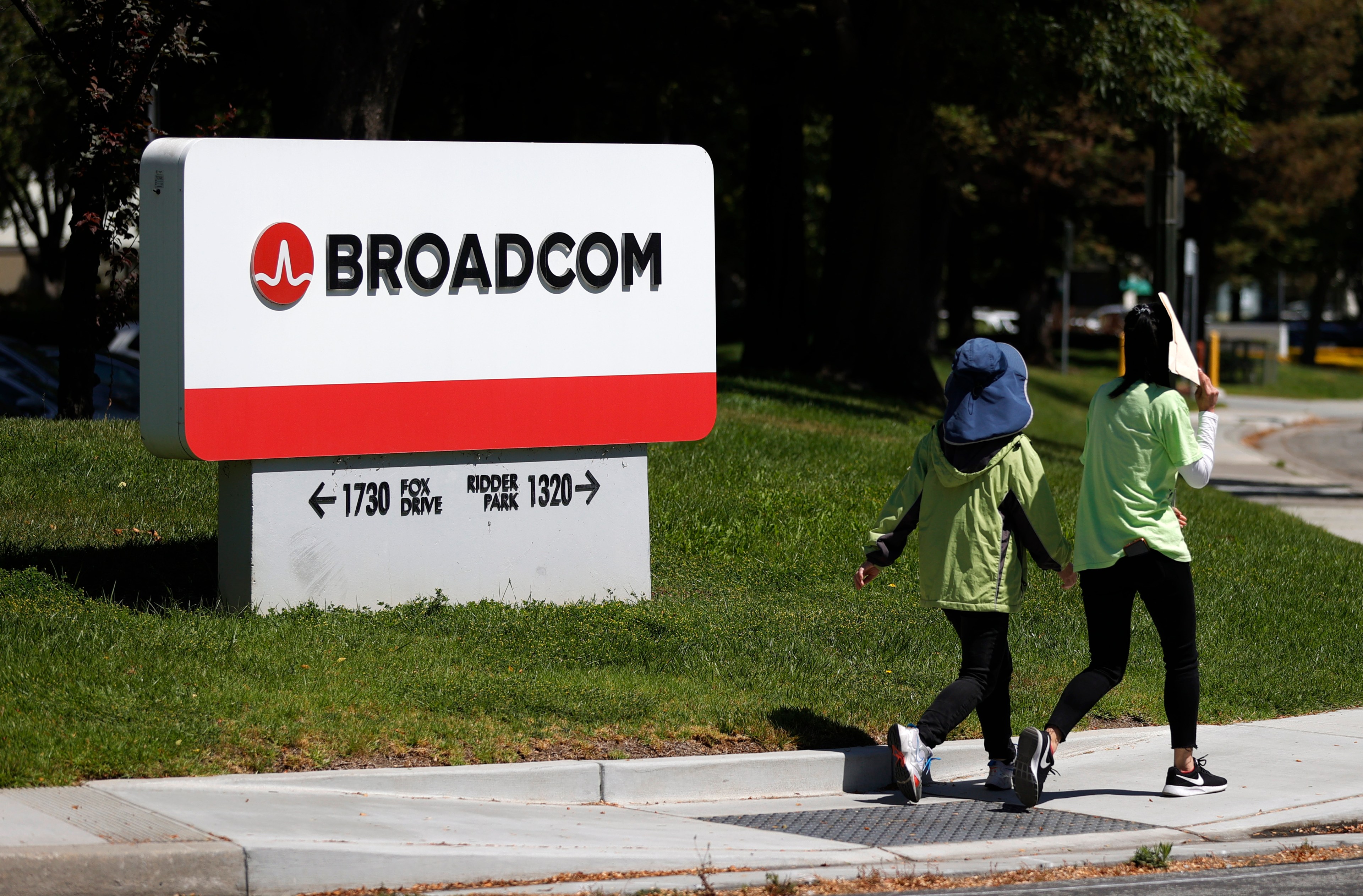Come back into the office please, but just a heads-up—there will be a lot less of it and quite a bit fewer of you. That’s the message from one major Silicon Valley tech company to its workers.
When chipmaker Broadcom sealed its $69 billion acquisition of VMware last year—the largest tech merger ever recorded in the U.S.—industry observers not only wondered what business impact the deal might have, but also how the company would handle its return-to-office strategy.
At the time of acquisition, VMware’s 30,000-odd employees had predominantly been working from home. How Broadcom would corral them back into the office was going to be a bellwether for building owners still struggling with record-high vacancy rates, the thinking went.
The initial news was encouraging for back-to-the-office boosters. Shortly after the deal closed, Broadcom CEO Hock Tan outlined a near zero-tolerance policy on remote work and announced that the newly combined company would shift its headquarters from San Jose to VMware’s newer 1.6-million-square-foot campus in Palo Alto.
But just over a month since that announcement, Broadcom is now putting nearly two-thirds of the campus, up to 1 million square feet, up for sale, according to multiple real estate sources. Pricing for the property was not immediately clear since it is not yet listed on the market. The impending listing was first reported by The San Francisco Chronicle.
Multiple sources said real estate firm CBRE is handling the listing. Although the firm itself did not respond to requests for comment. Broadcom did not respond to requests for comment, but its website already lists 3401 Hillview Ave. in Palo Alto as its new global headquarters.
During its quarter-century rise into one of the world’s leading cloud-computing companies, VMware acquired the campus in 2005 and built it out over the course of a decade.
The offices, which now include 18 buildings blended in with massive gardens and nature trails, were once dubbed the company’s “hilltop campus in the forest.” But after the onset of the pandemic, the 100-acre campus sat mostly empty as VMware allowed its employees to work from anywhere after an internal survey found 90% did not want to come back into the office.
Tan immediately put a kibosh on that policy. “Remote work does not exist at Broadcom,” Tan said at a company all-hands meeting shortly after the merger closed.
“If you are customer-facing, go-to-market [sales], then sure, you can be remote, I don’t care.” He continued: “Any other exception, you better learn how to walk on water. I’m serious.”
Broadcom, which used to be headquartered at 1320 Ridder Drive in San Jose, subsequently laid off more than 1,200 VMware employees based in the Bay Area, citing redundancies. An unspecified number of other VMware employees also accepted buyouts, rather than continue with the company.
While many large tech companies opted to scale back their in-person office presences during the heights of the pandemic, Tan took the opposite approach. Just a month after statewide shelter-in-place orders were given, Broadcom started ordering some of its employees back into the office even though local governments had yet to outline their own reopening plans.
Of note, Tan also served on then-President Donald Trump’s “Opening the Country” council in 2020, which was focused on how to reopen the U.S. economy after the pandemic.
Before last year’s merger closed, Tan said he was a longtime admirer of the real estate Broadcom was about to acquire.
“VMware has a beautiful campus in Palo Alto that remains empty,” he told VMware employees in 2022 when asked about what he would do with the company’s flexible work-from-home policy. He added, “Real estate isn’t cheap.”
But as the saying goes: Be careful what you wish for; you may just get it. Turns out this shiny new tech campus may be a little too rich even for Tan’s blood.
